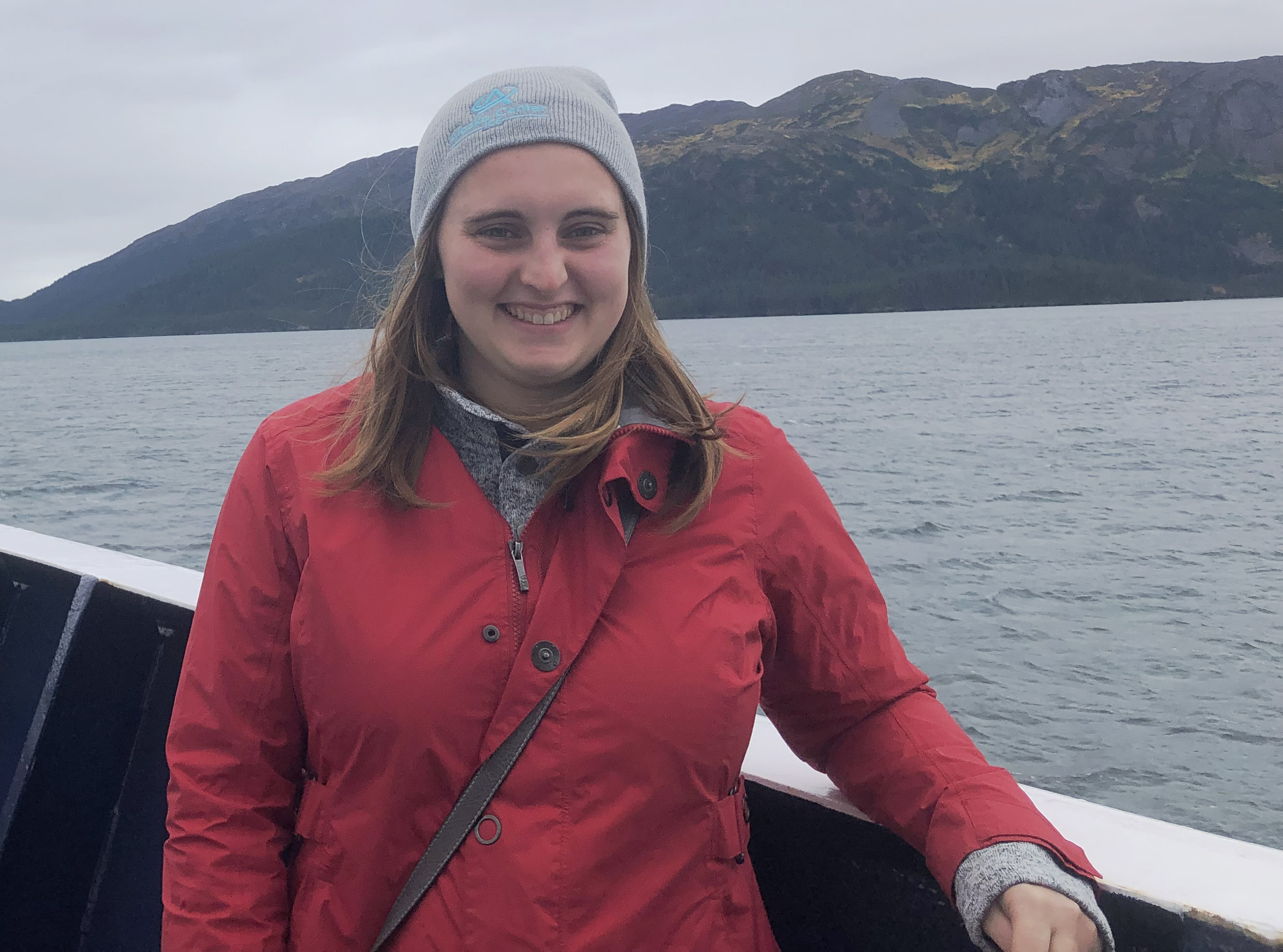Introducing Alaska Innovation Fellow – Ashley Guernsey

Ashley Guernsey is an innovation fellow at Center ICE.
Ashley Guernsey is an Innovation Fellow at Center ICE through the Alaska Fellows Program. The Alaska Fellows Program is a fall-to-spring residential fellowship program that nurtures the next generation of Alaska-based leaders by pairing talented young people with strong communities and professional mentors.
A lifelong resident of Moose Pass, Alaska, Ashley grew up ice skating, reading, and dog mushing. She finished the Junior Iditarod Race at age 14 and two years later, she became a Senate page in Washington, D.C.
Ashley recently graduated from Franklin and Marshall College in Lancaster, Pennsylvania. After successfully defending her Honors thesis, “Russian Colonialism in Alaska,” she received a Joint Major Bachelor’s Degree in Economics and Religious Studies.
Ashley recently joined Teaching Through Technology (T3) on a trip to Cordova to deliver hydroponic grow tower training to Cordova High School students and meet with community stakeholders.
T3 is a program focused on providing curriculum and technology to high school students around Alaska. This curriculum is focused on providing youth with science, technology, engineering and math education by tackling real-world problems around community needs.
Hydroponic grow towers are vertical structures that allow plants to be grown indoors and have automated water systems and grow lights to ensure plants thrive. Students in Cordova built the towers with two lab technicians from the University of Alaska Fairbanks’ Makerspace. Through building the towers, students gained experience and knowledge about growing plants, maintaining a hydroponic system, and computer coding. This project allows Cordova students to harvest fresh greens throughout the winter when there is limited produce available in stores.
Center ICE supports T3 and Upward Bound’s Makerspace at UAF through providing mini-grants students can use to support student projects that address community needs. Students can use the funds to purchase materials needed to build or prototype ideas.
Ashley visited the Cordova Electric Cooperative and learned about how the utility company uses both hydropower and diesel generators. During the summer the cooperative stores electricity in lithium-ion batteries and can power most if not all of Cordova’s electric needs through hydroelectric power.
Scott Pegau at the Prince William Sound Science Center led an informal tour and explained how the new building’s collaborative spaces will benefit students in the Cordova community. “I was very impressed with the variety of lab spaces in the building as well as with their classroom facilities,” said Ashley.
“During this visit I heard from members of the Cordova community about their challenges and initiatives to support Cordova,” she said. For example, increasing the amount of hydroelectric energy at Cordova Electric Cooperative that can be stored and utilized in the winter. At the high school, T3 is continuing to support STEM education and increase opportunities for students to participate in statewide programs. T3 also provides opportunities for educators to learn and support their students as they all work together to learn and use new technologies.
“I’m excited to support innovation and entrepreneurship through my role as an Innovation Fellow with Center ICE,” said Ashley. During her tenure with Center ICE, Ashley explained she hopes to gain a better understanding of Alaska’s bright future being created by innovators and entrepreneurs today and to explore future opportunities on her educational and professional journey.


